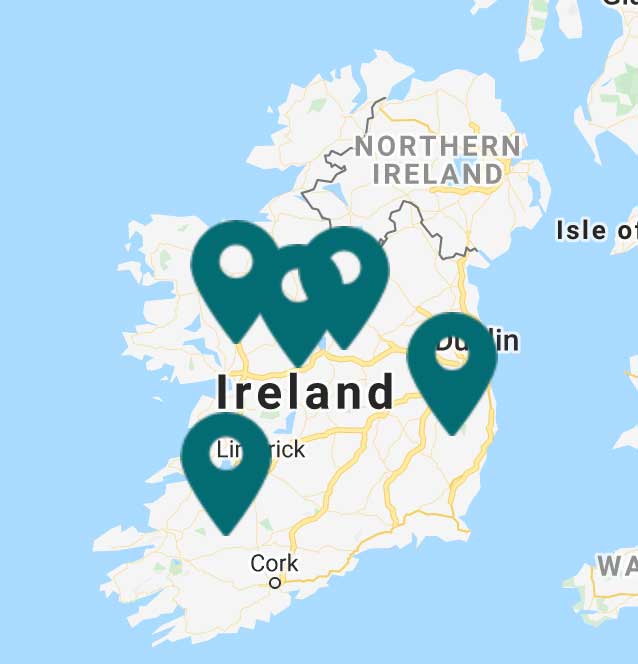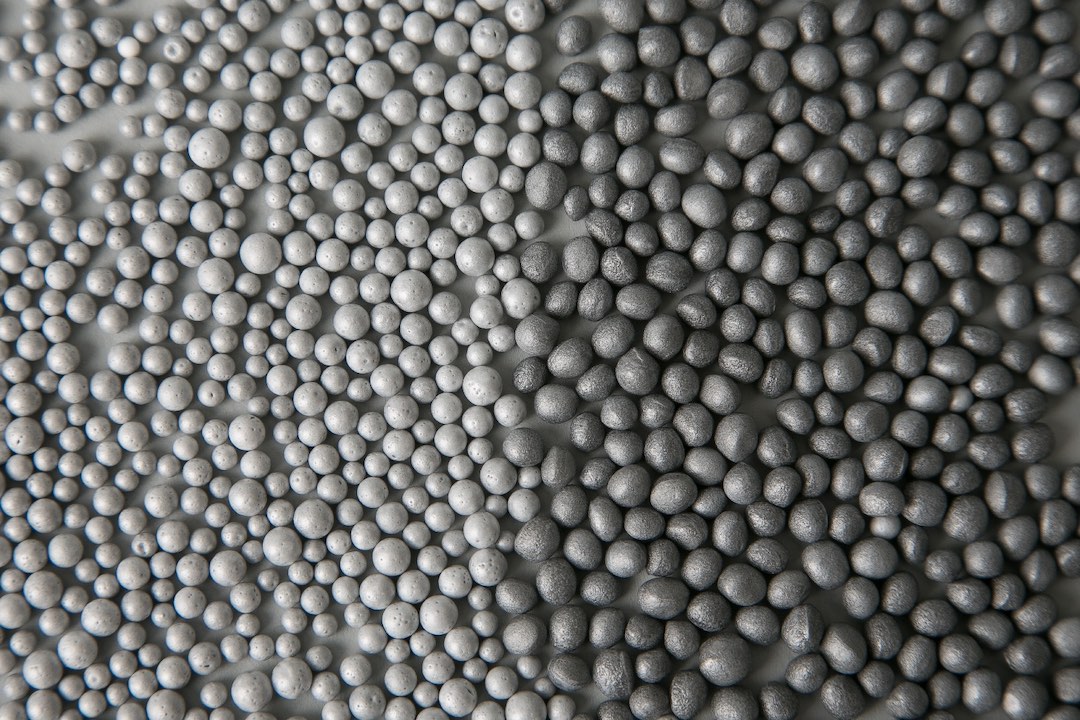
Expanded Polystyrene is fast becoming one of the most commonly used insulation materials across Ireland. Used for a variety of insulation applications, EPS is found in cavity walls when used as bonded bead cavity wall insulation, rigid boards for floor insulation, insulated foundation systems and external wall insulation systems. The closed-cell nature of EPS means you’re insulating with 98 percent air. The material is lightweight, easy to handle and can be cut on-site or when manufactured. The material can easily be used to achieve low energy building standards, and is available in a variety of densities depending on the needs of your project.
In our latest post on the KORE Blog, we’ll explore everything you need to know about EPS and why you should make the switch to Expanded Polystyrene today.
Manufactured to suit the needs of your project
EPS is a versatile material and can be manufactured in a range of densities. First, the raw EPS material is expanded using steam to create beads of Expanded Polystyrene. The expanded beads are then cured for a short time before moving on to the mould where steam is used again to create large blocks of EPS. Depending on the application, the blocks are then cut to different sizes and thicknesses, or placed in storage where they are allowed to age for a number of weeks. External wall insulation, for example, is usually aged for at least six weeks to ensure a consistent thermal performance.
Quality assurance checks are completed at every stage of the manufacturing process, meaning you can be assured that the EPS will perform consistently over multiple orders. The results of these QA checks are recorded and stored for auditing purposes.
We manufacture EPS in a range of densities, including:
- Low Density (LD – EPS50)
- Standard Density (SD – EPS70)
- High Density (HD – EPS100)
- Extra High Density (EHD – EPS150)
- Ultra High Density (UHD – EPS200)
- Ultra Ultra High Density (UUHD – EPS300)
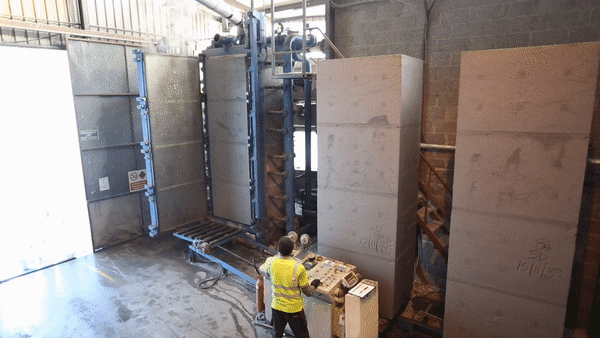
The density of EPS required depends on the project itself and the compressive strength required. For example, Standard Density EPS70 would normally be used for external wall applications, while Extra High Density EPS150 would be used for floor insulation applications where a stronger compressive strength is required. You’d find Ultra Ultra High Density EPS300 in insulated foundation applications where the insulation must accommodate heavy loading.
White and silver expanded polystyrene
In addition to the different densities of EPS that we can manufacture, Expanded Polystyrene is offered in different grades of material that affect its thermal performance. White EPS, while still offering a high thermal performance, requires slightly thicker levels to achieve the same thermal performance as our graphite-enhanced silver EPS. For example, while a project may call for 120mm of white EPS, the same thermal performance can be achieved with 90mm of silver EPS.
As the cost difference between white and silver EPS is small, the choice between which material to use may come down to personal preference. For example, white EPS is said to be slightly easier to work with when installing external wall insulation systems. This is because white EPS reflects the sun better than silver EPS, meaning it’s not necessary to rasp the insulation, as it will not become as “greasy” when exposed to the sun’s heat. Taking this step out of the installation of external wall insulation can save several hours and cut costs for the contractor and customer, however, silver EPS is still used in the majority of cases as a higher thermal performance can be achieved with less material.
Available in a range of thicknesses
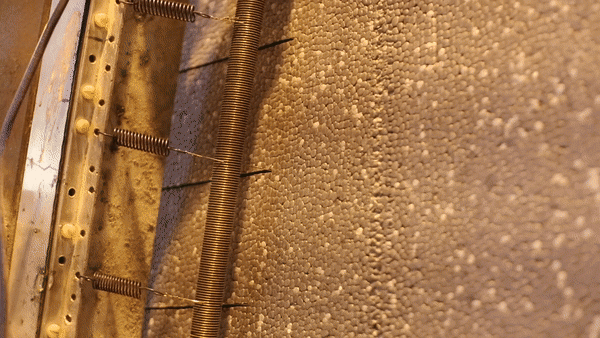
Expanded Polystyrene is a versatile material that can be cut to a wide range of sizes and thicknesses directly at the factory or on the job site. The video above shows silver EPS being cut into rigid boards that will be packaged and delivered directly to site according to the requirements of the project.
The thickness that you’ll require depends completely on your project and the U-values that you’d like to achieve. One of the more common thicknesses you’ll find for floor insulation, for example, is 150mm of EPS70 Silver. This thickness will normally achieve a U-value of 0.15W/m2K when used in conjunction with an underfloor heating system as per Ireland’s Building Regulations.
At the factory, moulded blocks of EPS are cut using a hot wire. The machines are set to the required board size and thickness before being fed through the machine and packaged for transport. Higher densities of EPS may need to be cut using specialised machines, such as EPS300.
Expanded polystyrene for cavity wall insulation
In addition to rigid boards of EPS, the raw material can also be manufactured into beads of expanded EPS for use as cavity wall insulation. The manufacturing of cavity wall insulation skips the step of moulding blocks of EPS as they won’t be cut into rigid boards. KORE offers two different types of bonded bead cavity wall insulation, KORE Fill Original and a lower thermal conductivity bead KORE Fill Diamond. You can learn more about the installation process of KORE Fill on the KORE Blog.
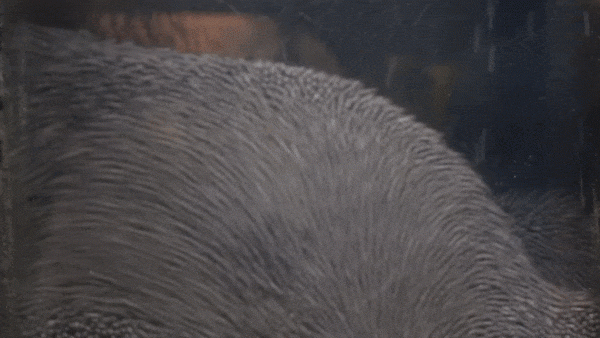
Expanded Polystyrene for applications other than insulation
EPS can be manufactured into a wide range of products other than insulation. For example, EPS can also be used for product packaging, loose bead for bean bag filler, void formers for civil engineering applications and even used for poly sculpting, like set design for movies and television series.
The technical side of EPS
While it may seem like a simple material, EPS is strong and versatile and has been used around the globe for decades. KORE manufactures EPS with a flame-retardant additive, helping to limit the spread of fire when installed correctly. It is mould-proof, rot-resistant, does not absorb water and will not degrade over time. In addition, the make up of KORE EPS is 98 percent air and 2 percent EPS, making it extremely lightweight and easy to work with, and will not off-gas (lose thermal conductivity) over time like other materials such as PIR.
EPS is a sustainable material that can be recycled once its useful life has been met. In addition, it can be reused during many stages of the manufacturing process.
- At the factory, on-site waste can be re-used in production to create additional EPS products. This ensures that none of the material goes to waste.
- EPS accounts for less than 0.1% of municipal solid waste, and can be recycled through a growing number of collection points across Europe.
- Recycled EPS can be manufactured into a number of other products, like CD and DVD cases and synthetic timbers.
- Pentane gas is used during the manufacturing process, meaning there are no CFCs or HCFCs involved in EPS manufacturing.
- The BRE Green Guide to Specification gives EPS an A+ summary rating.
EPS has been proven to remain strong even after decades of use. A report published by EUMEPS in its EPS briefing found that after several strength tests, EPS that had been in the ground for 30 years showed absolutely no loss of strength. Cold flow was also found to be significantly less than expected with long-term exposure to sustained loading.
To learn more about the technical benefits of EPS, join the KORE Resource Centre and download our latest technical documents free of charge.

